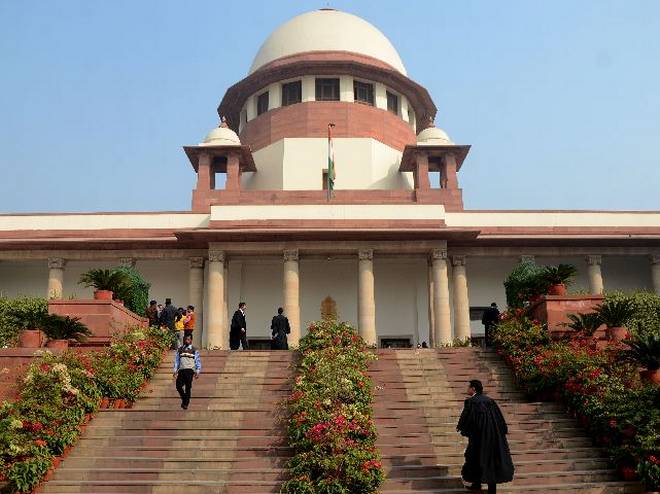Over the years politicians in India have increasingly mixed religion and politics despite the authors of the Constitution seeking to separate the two elements.
In fact, under the Constitution, secularism has been laid down as the cardinal principle of governance. However on the ground politicians see the mix of religion and politics as a potent vote catching mechanism.
In current scenario, as a result of competing sectarian politics there are discussions of parties adopting a soft Hinduism line rather than “ Hindutva”, a term referring to fanatic Hinduism, particularly in light of notorious cow vigilante groups gaining prominence.
The Supreme Court has on several occasions attempted to differentiate between the terms ‘Hindu’, ‘Hinduism’ and ‘Hindutva’ . The court has tried to define it in different contexts — ranging from pure religious point of view to use of religion in elections.
In all its judgements the SC has however never identified Hindutva as the militant or fanatic version of Hinduism.
Hindu Religion Not Bound By Narrow Definitions
Nearly half a century ago, a five-judge constitution bench comprising Chief Justice P B Gajendragadkar, K N Wanchoo, M Hidayatullah, V Ramaswami and P Satyanarayanaraju in ‘Sastri Yagnapurushadji’ case [1966 SCR (3) 242] had sought to provide the historical and etymological genesis of the word ‘Hindu’.
In the judgment for the bench, Justice Gajendragadkar stated that the genesis of the word ‘Hindu’ has been controversial, but it is generally accepted that the word comes from the river Sindhu, or Indus that flows via Punjab.
The judgement further noted that it is difficult to define the Hindu religion or “even adequately describe it”. The court pointed out that in the Hindu religion, there was no one prophet, or one god or even one philosophical concept. The religion does not fit into “narrow traditional features” of any religion or creed, and it may be described as “a way of life and nothing more,” the court said.
In 1966 the SC attempted to define ‘Hindu’ in its judgement in ‘Commissioner Wealth Tax, Madras vs Late R Sridharan’ [1976 (Sup) SCR 478], stating that as Hinduism “embraces so many diverse forms of beliefs, faiths, practices and worships” that it is hard to define the term ‘Hindu’ with precision.
In recent years, reacting to perceived appeasement of a certain community by some politicians, other sections of politicians have launched ‘save Hinduism’ election campaigns, which seem against the Constitution’s ‘secularism’ spirit.
Do ‘Hindutva’ Speeches Violate the Representation of the People Act?
The Representation of the People Act has in fact banned candidates from seeking votes on the basis of religion.
The erstwhile chief of Shiv Sena Bal Thackeray had made a series of ‘Hinduism’ and ‘Hindutva’ themed speeches, while campaigning in 1987, which was debated in the SC.
The SC considered the question: whether the use of ‘Hinduism’ and ‘Hindutva’ in an election campaign was against the RP Act?
Hindutva Term Not Necessarily Hostile To Other Religions
A bench led by Justice J S Verma in Ramesh Yeshwant Prabhoo case [1996 SCC (1) 130] had stated that the words ‘Hinduism’ or ‘Hindutva’ may not be “understood and construed narrowly,” in relation to strict Hindu religious practices outside of “the culture and ethos of the people of India”, relating to the “way of life of the Indian people.”
It also said that considering the terms to indicate “hostility, enmity or intolerance” towards other faiths or to profess communalism, is the result of “an improper appreciation and perception” of the true meaning of these terms.
The judge said that the misuse of the expressions to promote communalism will not change the “true meaning” of these terms, adding that such misuse of the terms must “be checked .“
The SC concluded by stating that it was “a fallacy and an error of law” to assume that references to Hindutva or Hinduism in a speech makes it a speech based on the Hindu religion or that it indicates a hostile attitude to other religions.
Considering these rulings, the self-appointed guardians of Hinduism need to make a conscious attempt to assimilate and reflect all the cultures and customs in India .





